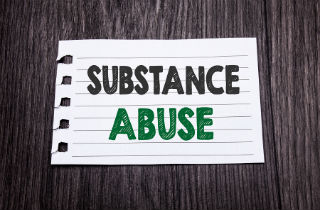Substance abuse occurs among physicians, just as in any profession. But what are some of the unique problems that doctors face when seeking recovery from addiction? And how can the system support physicians who are in need of help?
Today, we speak with Neal H. Gray, MD…a doctor who has specialized in anethesiology for most of his career. Former Associate Professor and Clinical Professor at the University of Texas Health Science Center in San Antonio and advisor to the State of Texas’ Physicians Health Program, Dr. Gray has a keen interest in addiction, its prevention, and ways we can use education to inform patients about the risks of addiction. Here, he helps us understand substance abuse in the context of the medical profession, as well as how to prevent addiction for people getting ready for surgery.
ADDICTION BLOG: Dr. Gray, welcome to Addiction Blog. What is addictionology?
DR. GRAY: Addictionology is the medical practice which attempts to study and understand the disease of addiction. There are a great number of disciplines other that medicine that also enter into this study and each of these bring a different bias into the body of understanding. Some are useful: many are not and a lot of data is junk science.
Research is difficult because we’re human. Most of our subjects lie, many go undetected or are treated undercover, and incidence studies have no real denominator. A vast number of patients never enter into a research facility and those that do present a significant selection bias.
ADDICTION BLOG: Is diagnosis of addiction by a doctor certified in addictionology preferrable to a diagnosed provided by a mental health professional such as a psychologist? Or is diagnosis more or less the same across the medical system?
DR. GRAY: It takes no great intellect to diagnosis addiction. Spouses and partners do it all the time. It is the denial of the powerlessness and life’s unmanageability that is difficult and poorly handled by all.
ADDICTION BLOG: What are some of the more risky Rx medications used during surgery that increase risk of drug dependence and/or addiction? Is it mainly opioids or are there other drugs you’ve seen with high risk?
DR. GRAY: Risky medicines are used in anesthesia for surgery, but the short period of exposure should not pose a problem. However, misuse of these agents such as Propofol, fentanyl, ketamine, and Versed, not only can be addictive but fatal. Continued use of narcotics long after recovery from surgery is a common problem, particularly when bottles of 60 Vicodin are dispensed by the surgeon.
ADDICTION BLOG: What are some ways that doctors can help prevent drug dependence or addiction in patients about to go through major surgery? Is it limited to education? Brief interventions?
DR. GRAY: Patient’s usage of post operative narcotics must be monitored, recorded and restricted as necessary. Also, non medical pain relief strategies should be stressed like heat/cold, splinting, early mobility, etc. Narcotic prescriptions should not have refills. Pain is pain, but suffering is optional.
ADDICTION BLOG: You’ve spoken and written on issues surrounding drug abuse. While many people would not want to hear about substance impaired physicians, can you help us locate some stats? How many doctors who are board licensed physicians are estimated to currently have a problem with substance abuse? What organizations currently “watchdog” physician impairment?
DR. GRAY: Statistics on incidence of physician substance abuse are not valid. We don’t know the numbers but all indications are that the incidence is not different from other professionals and business people. It may seem higher, but this is usually a selection bias caused by severity, demands of credentialing, and fear of relapse.
Many alcoholic physicians seek help through A.A. and are not reported. San Antonio has a medical society of over 4000 members. Our local committee has been involved in well over 300 cases of physicians needing help with interventions, monitoring and reentry support and follow up. Anesthesiologists comprise 24 of these physicians, most alcoholic now in recovery but 11 addicted to narcotics and 6 of them able to return to anesthesiology successfully and with continued sobriety.
An active county medical society committee supported by a non disciplinary state agency, following their recovery and a contract for recovery including AA, or NA meetings and lab screening is essential.
ADDICTION BLOG: What are some of the barriers physicians experience in getting help for substance abuse related problems?
DR. GRAY: Detection of a substance abuse issue is feared by all addicts and physicians especially due to then problems with licensure, hospital privileges, loss of income and family. Denial is a matter of survival to the impaired until they realize that continued abuse guarantees these losses and treatment and recovery are the only hope.
ADDICTION BLOG: How should the licensing process be changed to encourage physicians experiencing substance abuse to get help?
DR. GRAY: As soon as a licensing body has suspicion of substance abuse, the physician should be referred to an agency that can offer intervention, referral for treatment and long term monitoring that treats the physician as a sick doctor, not a bad doctor. Then, in recovery, this agency can recommend return to practice without licensure problems.
ADDICTION BLOG: What would you like to see in terms of change within our medical system in order to help prevent addiction?
DR. GRAY: Keep educating our students, residents and older physicians to the problem. Annual lectures help, and we’re making some headway, but there still seems to be a constant stream of doctors needing recovery.
ADDICTION BLOG: What would you like to see in terms of change within our medical system in order to support addiction recovery? Is there anything else that you’d like to add?
DR. GRAY: A recovering physician is a special resource. Weller than well and less risk than a unknown applicant.









Related Posts